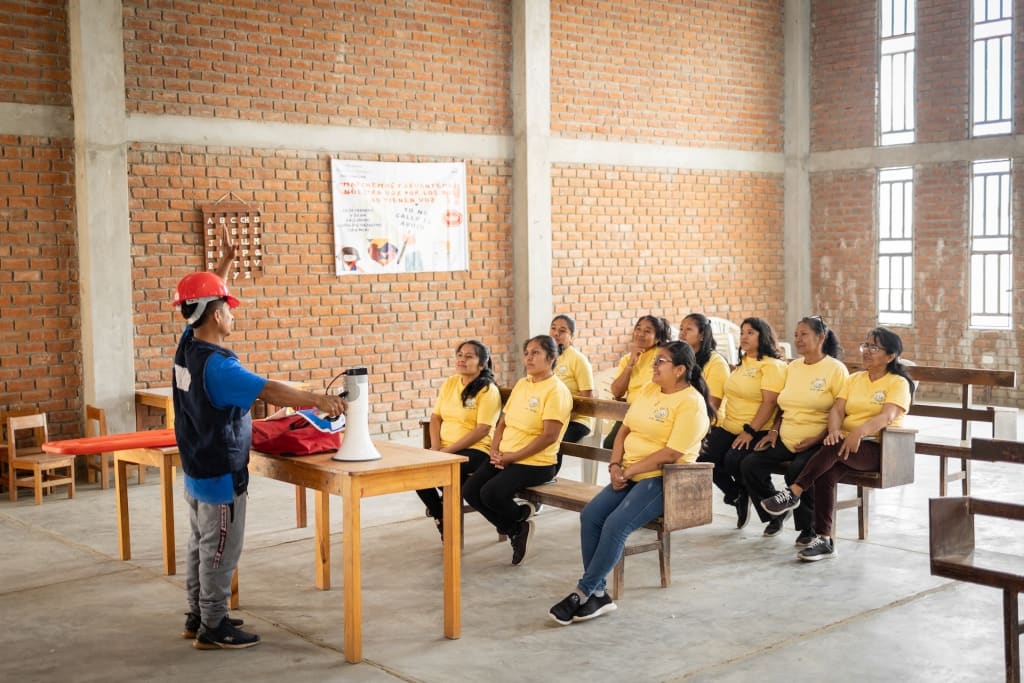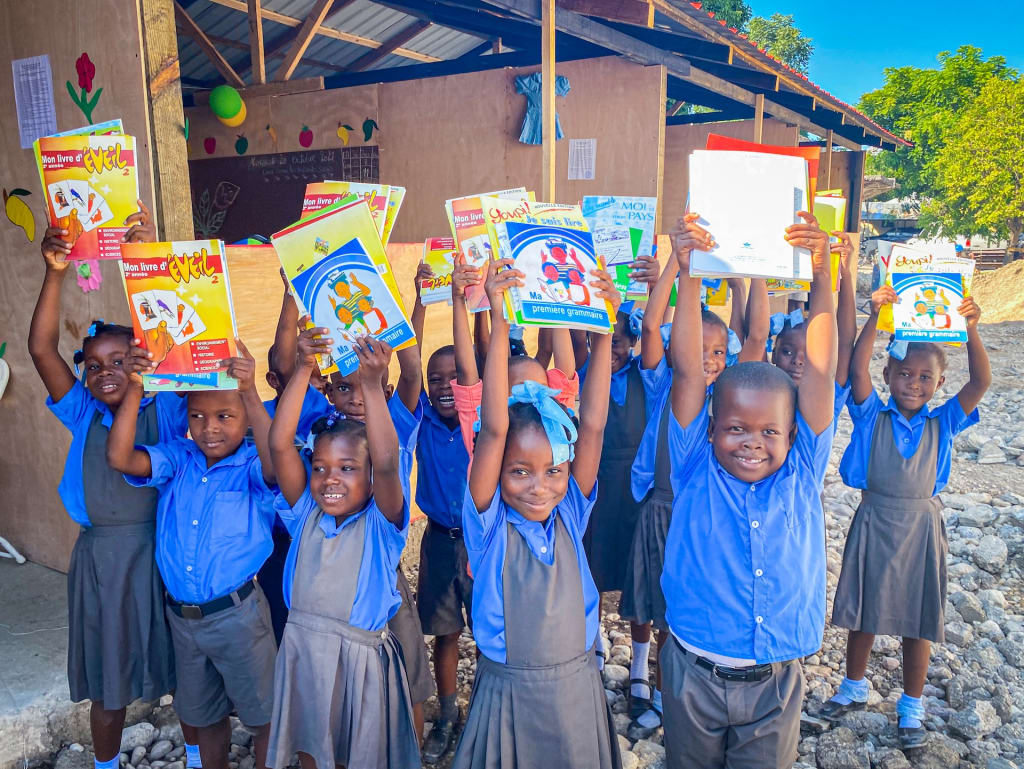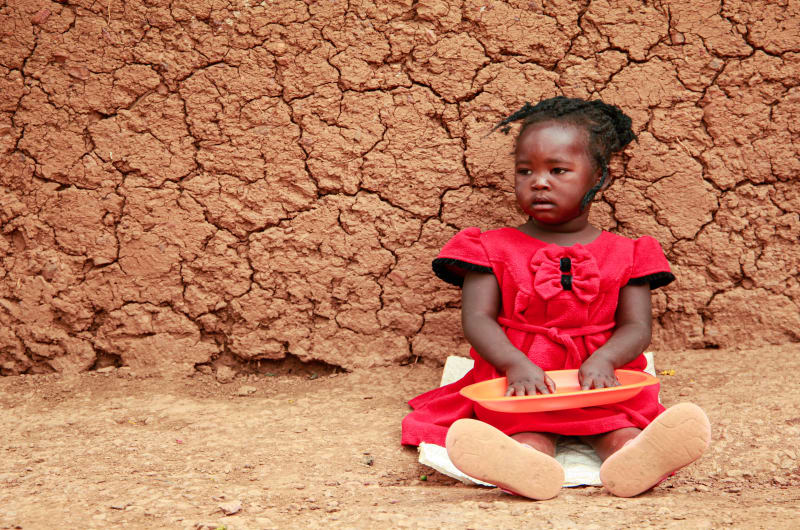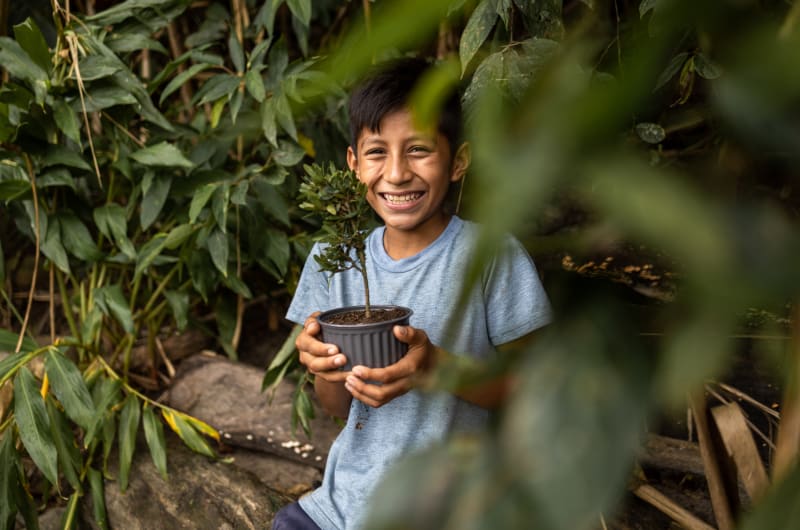Each day in Sri Lanka, Thamilselvi faces questions from her two young sons that cut straight to her heart: Why can’t we have chicken for dinner? Why is the tea missing milk? Why aren’t there any biscuits? For her, these aren’t just innocent childhood requests; they’re reminders of the painful reality that she often doesn’t have enough food to give them.
Like millions of other families around the world, Thamilselvi has been forced into heartbreaking choices. She has considered leaving home to work abroad so that she can send money back, ensuring her boys get three proper meals a day. This is the devastating reality of today’s global food crisis, one of the most urgent humanitarian emergencies of our time.
But this is not where the story ends. Through Compassion’s local church partners, Thamilselvi’s children receive nutritious meals and her family receives essential food packs. In a season marked by crisis, hope is entering her home again.

Thanks to Compassion’s local church partners, Thamilselvi’s children and many others have access to nutritious and much-needed food during food crises.
The Reality of Crisis
Disasters come in many forms—storms, earthquakes, conflict, hunger and even global pandemics. For children and families living in poverty, the effects are especially devastating. With limited resources and fragile infrastructure, entire communities can be left without shelter, clean water or access to food within a matter of hours.

Compassion builds resilience into communities, ensuring that disasters and crises don’t catch them off guard. Here, Compassion centre staff in Peru attend a natural disaster security training session.
Statistics reveal just how severe the impact can be:
- In 2024, over 160 million people worldwide were affected by natural disasters (UNICEF).
- By December 2023, 47.2 million children were displaced due to conflict, increasing the risks of malnutrition, illness and trauma (UNICEF).
- In 2024, it is projected that over 500,000 people across five countries affected by conflict will face IPC Phase 5, classified as the most severe level of food insecurity (UNICEF).
For many, a crisis feels like the end of the story. But as people of faith, we know that’s not true.
How Faith Informs Our Response
When a storm sweeps through or a conflict uproots families, faith communities often stand at the forefront of the response. Local churches, connected to their neighbourhoods long before a crisis strikes, are uniquely positioned to act quickly.

Even in times of hardship, families are able to find hope in the presence and support of local churches who extend the hands and feet of Christ to their communities.
Faith makes a difference because it offers more than just aid. Faith offers:
- Presence: Churches are there before, during and after a disaster. They offer shelter when homes collapse and comfort when fear overwhelms.
- Practical care: Through global partnerships, immediate needs, including food, water, nutrition and medical aid are met.
- Long-term restoration: Beyond the emergency, faith calls us to rebuild livelihoods, restore dignity and walk alongside families for years, not just days.
Every prayer, every act of generosity, reminds families that God’s love is stronger than despair.
Stories of Renewal
Around the world, we’ve witnessed the same powerful truth: crisis does not have to have the final word.
- In East Africa, when hunger struck, church partners helped families secure emergency food supplies and then supported long-term agricultural training. What began as survival became sustainability.

Thanks to Compassion’s income generation initiatives, Hadija and many others in East Africa are able to generate income through raising livestock and agriculture.
- After a devastating earthquake in Haiti, children supported by Compassion were given emergency food packages, hygiene kits and safe spaces to pursue their education and receive counselling, helping them rebuild confidence alongside their homes.

Children in Haiti raise their books in excitement as the construction of new classrooms allows them to return to school.
These stories remind us that when communities unite through faith and compassion, disaster is the beginning of transformation.
Why Your Response Matters
It can be easy to feel overwhelmed by global crises. The needs are massive and one person’s contribution may feel small. But never underestimate the ripple effect of hope:
- A child who receives food today goes back to school tomorrow.
- A family sheltered tonight can begin rebuilding their livelihood next month.
- A community strengthened by faith today becomes resilient for generations.
Here are three ways you can make a difference:
- Give to emergency relief funds: Your gift provides urgent care, food, water, nutrition and medical aid, right when families need it most. Even a small donation can mean a meal for a child or a safe night’s sleep for a family who lost everything.
- Pray with purpose: Prayer is not passive. It’s powerful. Pray for children who are afraid, for families piecing their lives back together and for local churches serving tirelessly on the front lines. Ask God to protect, provide and restore.
- Share the story: When you talk about crisis response in your church or online community, you spread awareness that leads to action. Your words can inspire someone else to give, pray or volunteer, multiplying the impact far beyond your circle.
When you give, pray and share, you are helping to break cycles of despair and replace them with hope.
Scripture reminds us: “God is our refuge and strength, an ever-present help in trouble” (Psalm 46:1). Disasters will continue to shake our world, but every crisis is an opportunity for God’s people to reflect His love.
Together, we can ensure that when crisis strikes, hope strengthens.
Are you ready to make a difference today?





